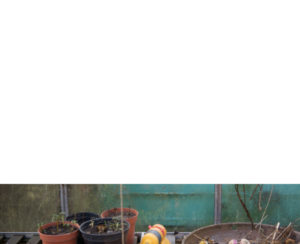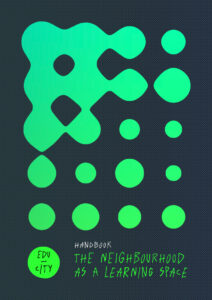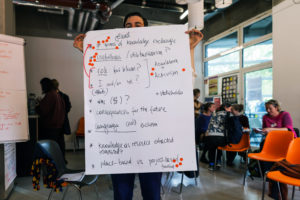A loop is a repetition, yet one that generates difference. Time, and the general system in which the loop is set, as a matter fact advance while the loop cycle comes back to its initial relative position. Think of a turntable, with the needle placed on the record coming back to the same point 33 times per minute. Even if we force the needle on a single loop, going over the same groove again and again, the effect will be different with each cycle. At first we’ll notice the general architecture of the sound, then we’ll start to appreciate the emerging passages, then we’ll start to notice the faintest details, until we notice the rustling of the groove, and the soundscape outside the system. We will eventually become saturated and bored, and our minds will most likely remove the obsessive sound, leaving us annoyed and shutting off the system. In any instance, the repetition of a single sequence causes a shift in one’s understanding and perception of reality, as well as a drive to change it.
In tackling community planning, we assume that a similar principle is at work. It is not much the grand linear investment of a set of hetero-directed actions that creates a real impact and produces an envisioned change, rather, the recursive application of short cycles that allow the evaluation of the progress, the feedback on the process and its improvement.
01/07/2024
Authors
Lorenzo Tripodi
Link & Download
read and dowload loSquaderno n.68


